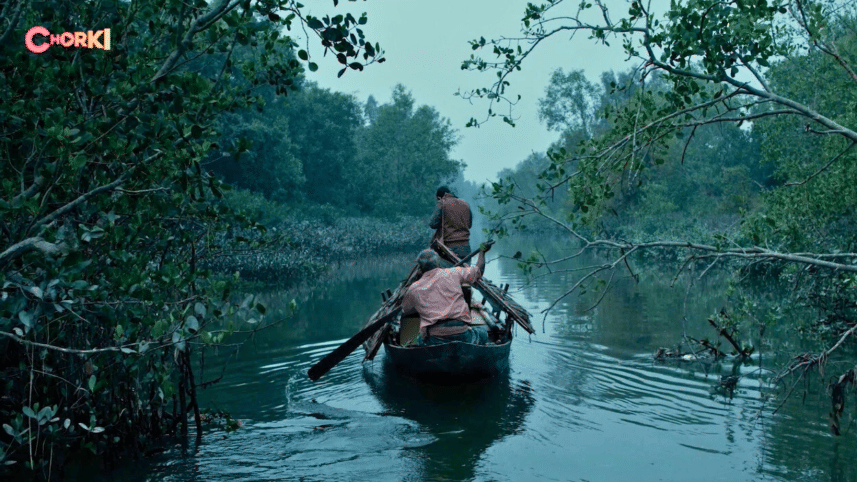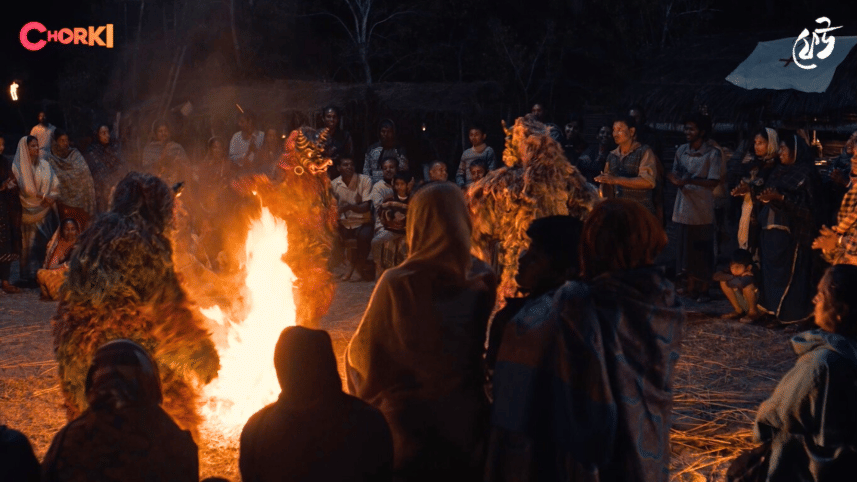Chorki’s ‘Feu’ follows the Marichjhapi massacre

The history of the Marichjhapi massacre, a dark chapter in the Sundarbans, forms the foundation of Chorki's upcoming web-series "Feu". Set against the backdrop of the 1979 massacre, the series explores the intersection of politics and humanity, highlighting the brutal treatment of refugees.
In 1979, Marichjhapi, an island in the South 24 Parganas district of West Bengal, became a refuge for many displaced by the partition of India and the Bangladesh Liberation War. A group of lower-caste (Namasudra) Hindus, who had faced hardship, sought shelter on the island with assurances from the government. However, the political promises made during elections took a drastic turn, leading to a relentless eviction campaign against the refugees.
Food and water supplies were cut off, houses were set on fire, boats were sunk, and indiscriminate killings occurred. Despite facing widespread condemnation, the Indian state government proceeded with the eviction, and by May 16, 1979, Marichjhapi was declared refugee-free. Official records claim only two people had died, but various accounts suggest that the actual death toll surpassed a thousand.

The atrocities that occurred during this period inspired "Feu", a fictional web-series directed by Sukorno Shahed Dhiman for the OTT platform Chorki. Dhiman explained, "There are many stories in the Sundarbans—tales of Bonbibi, bandits, and local myths. I, however, focused on the region's politics for 'Feu's' story to stem from."
Dhiman spent years gathering information, starting in 2016, before finalising the story in December 2022. The process involved completing 17 drafts of the screenplay before the project could begin.
While "Feu" is rooted in historical events, it is a work of fiction. The story, written by Sukorno Shahed Dhiman and Romel Rahman, is set against a real historical backdrop, with the screenplay penned by Dhiman and Siddiq Ahmed. The director infused the series with his personal experiences from Mongla, his region, and his knowledge of local politics.
Dhiman shared, "The foundation of this series is based on a real event, but everything surrounding it comes from my personal experiences with the people of Mongla, their lifestyles, and their political landscape."
The release date for "Feu" will be announced soon. Yesterday, Chorki unveiled the announcement teaser, which asks, "What happened in 1979? What has been hidden from us? Coming soon to Chorki, the original series 'Feu', inspired by real-life events."
The teaser, though devoid of character-reveals, makes it clear that the story is centred around refugees. A powerful dialogue in the teaser, "Is there anything that truly captures the lives of refugees? We're like temple bells—swayed by whoever chooses to ring them," further emphasises this theme.
The teaser also subtly introduces the geographical setting of the story, showcasing small and large boats, dense forests, moments of struggle, and even celebratory scenes. According to the director, he has chosen not to reveal the full significance of these scenes just yet, stating that the complete story will gradually unfold for the audience.



 For all latest news, follow The Daily Star's Google News channel.
For all latest news, follow The Daily Star's Google News channel. 
Comments